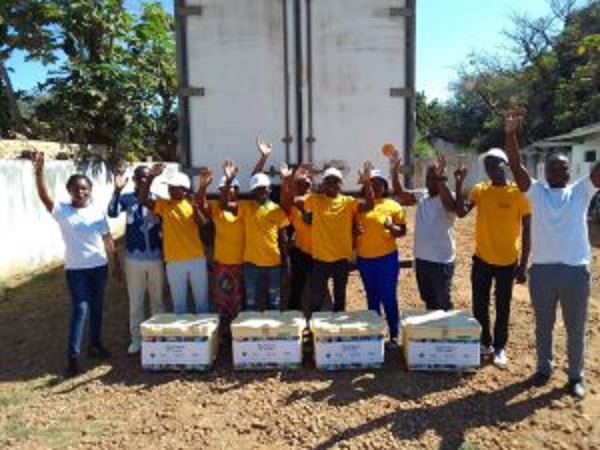Mozambique: CFM offers 3 days of free train rides to mark 130th anniversary
Mozambique: Projecta Jovem organises fish marketing in Niassa

Photo: Fim de Semana
Ten fish marketing units have been established in Niassa province, involving 40 young people from the districts of Lichinga, Mandimba and Cuamba, within the scope of the Project to Promote Aquaculture Marketing and Training Activities in Business Development for Young People in Niassa.
Materialised by Gapi and Chicoa Fish Farm, the initiative forms part of “Projecta Jovem”, guided by the International Labour Organization (ILO) in partnership with the Ministry of Agriculture and Rural Development (MADER), and focuses on creating “Decent Work for Young People in Mozambique (DW4YM)”. It is funded by the International Fund for Agricultural Development (IFAD).
The project’s priority is to create more and better job opportunities for young people in vulnerable situations in the provinces of Cabo Delgado, Niassa and Nampula, in northern Mozambique, through the development of technical and vocational skills and entrepreneurship, with a focus on developing the agribusiness and investments in infrastructure.
In this pilot phase of this specific activity, 138 applications were submitted, of which 87 were men (63%) and 51 women (37%). Forty candidates were selected – 21 men (52%) and 19 women (48%).
“We held training sessions based on the entrepreneurship module, with topics such as marketing, people management, legal responsibility of the company, cost and price calculation, financial planning and management, initial capital and customer management standing out among the various contents covered,” explained Rui Amaral, director of the Training and Business Consultancy Area at Gapi.
In the context of capacity building and training for beneficiaries, lectures were also given by technicians from the District Services for Economic Activities on the theme “How and why to formalise my company”.
At the same time and under the assistance, follow-up and monitoring actions for the business units, the beneficiaries are assisted and supported in the formalisation, implementation and strengthening of advantageous partnerships, with a view to guaranteeing the materialisation and consolidation of their businesses.
In this context, market links were established between the commercialization units and private operators, through the signing of memorandums.
In order to reach a greater number of beneficiaries, sessions were held to directly publicise the activity at educational institutions such as secondary and technical-professional schools, youth associations, in the main markets and on community radio stations.












Leave a Reply
Be the First to Comment!
You must be logged in to post a comment.
You must be logged in to post a comment.